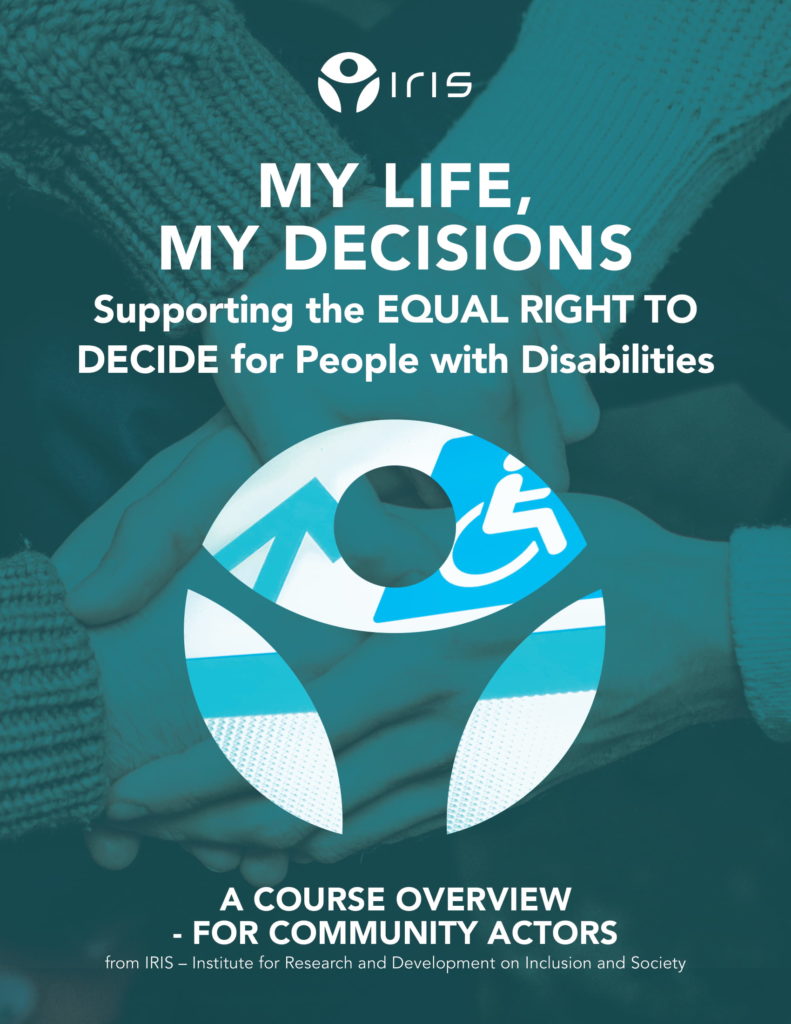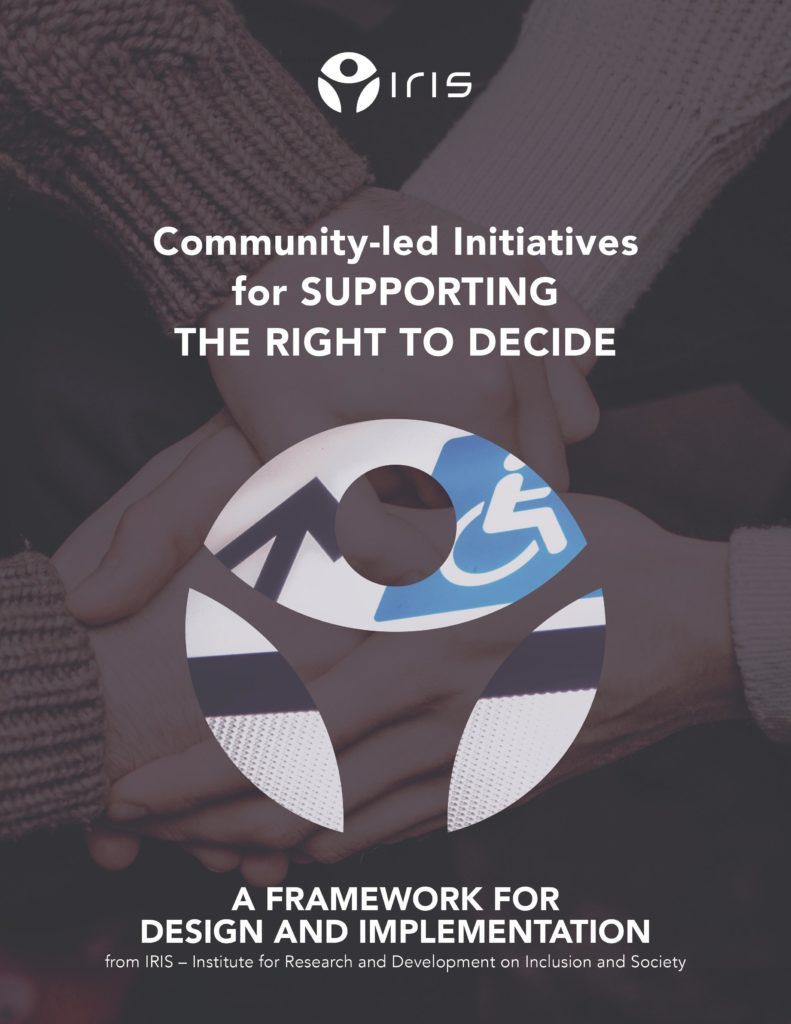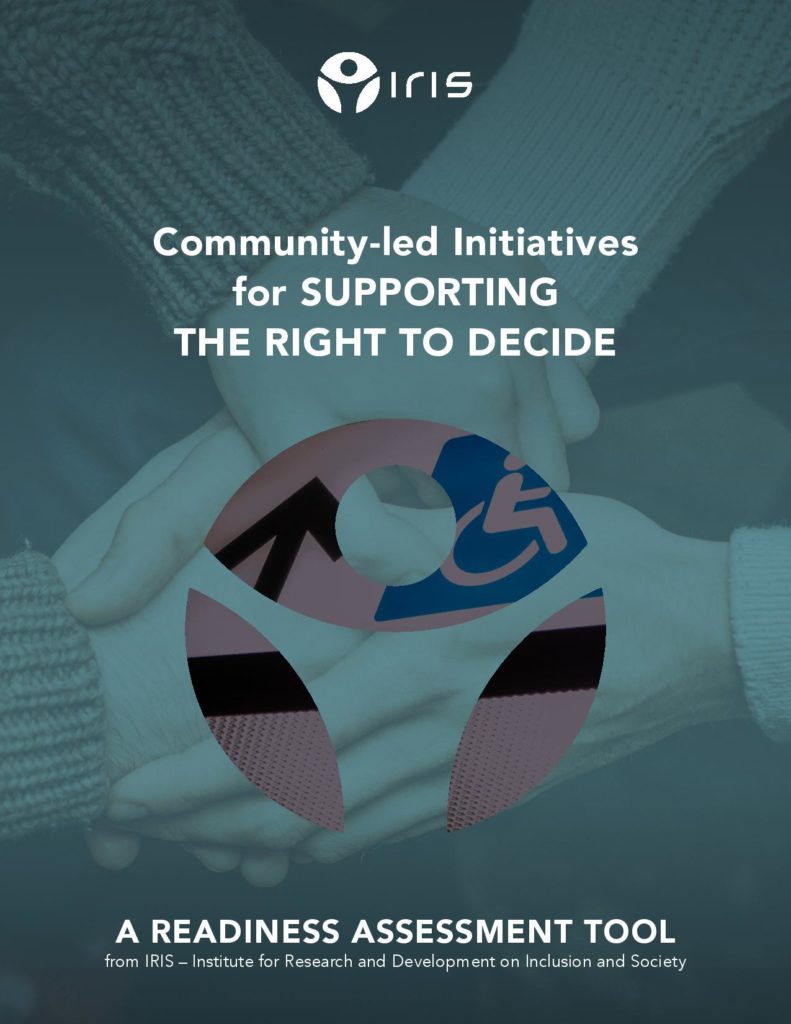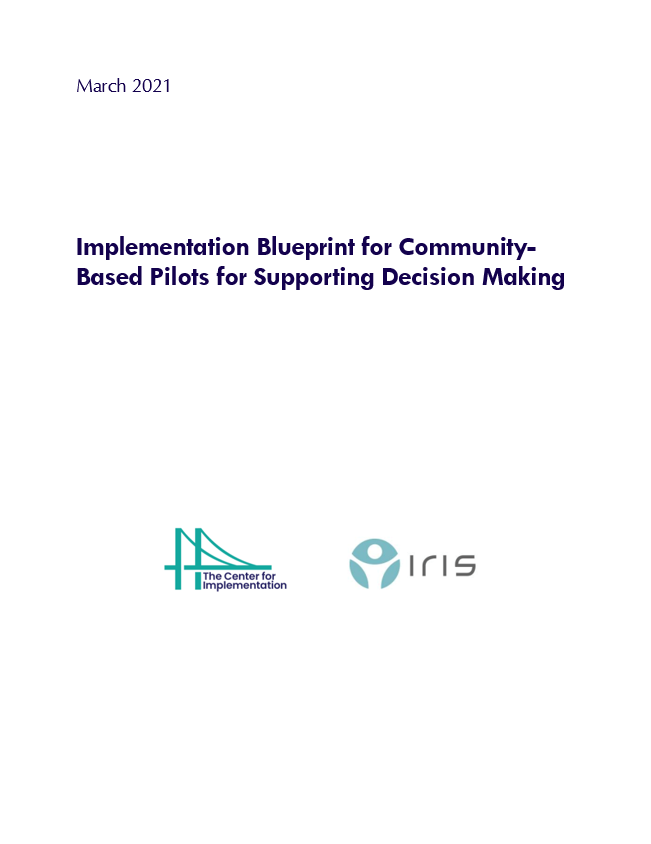IRIS has been working for some years to develop resources and strategies to advance the equal right to decide for people who live with an intellectual, cognitive or communication disability mental health issues. Many people who live these disabilities are denied the right to make basic decisions about their lives – about where they will live with, with whom, a health care treatment, or what they will do with their own money.
Denial of such a fundamental right has been called the ‘civil death’ of people with disabilities. It contributes to their status as non-citizens, unable to take their rightful place in their own lives, communities, and society.
The equal right to decide, or to exercise “legal capacity” without discrimination based on disability, is recognized in the UN Convention on the Rights of Persons with Disabilities (CRPD). Under the CRPD, governments must take steps to ensure this right is realized in people’s lives. This includes ensuring that people have access to the supports they may require for this purpose. One way to do this is by investing in community initiatives to arrange and deliver decision-making supports.
IRIS has developed some useful tools to assist communities in taking on this issue.

My Life My Decisions is an introduction to the right to decide, and the key concepts of supports for decisions, supported decision-making arrangements, and the duty to accommodate a person. Designed to be provided online or in person, this course has information and exercises for participants to learn about this issue and to begin to design a community-led initiative.

Community-led Initiatives Supporting the Right to Decide – A Framework for Design and Implementation
This guide presents the core functions of community-based initiatives to support people in making decisions, presented in this document, provides a helpful framework to begin the dialogue in your community. The first step is to convene community organizations and advocates who want to partner in launching a local initiative for the right to decide

Community-led Initiatives Supporting the Right to Decide – A Readiness Assessment Tool
This guide is designed to assist community organizations assess their readiness to implement strategies for supporting people in decision making. It looks at each of the ‘core functions’ for community-based initiatives in the Framework guide and asks about the enablers, barriers and strategies need to ensure effective capacity to deliver each function.

Implementation Blueprint for Community-Based Pilots for Supporting Decision Making
This is a technical resource to assist project designers in developing the detailed programmatic framework for designing and implementing a community-based initiative for supporting decision making. It is intended to assist technical assistance teams, researchers, policy makers and other stakeholders understand the theory and concepts behind community-led initiatives for supporting decision making.
Why are people denied the equal right to decide?
These barriers are rooted in long standing societal perceptions, and deeply held cultural values that to be a full person, equally respected to make decisions about one’s life, and be trusted to enter legal relationships with others, one must be able to understand consequences of this or that option and communicate in ways that others can understand. These assumptions have been woven into laws going back to the early Roman period. Today, they are reflected in mental health laws and substitute decision making laws still on the books and denying people with disabilities the right to decide in countries around the world.
What’s the consequence?
These discriminatory societal norms and laws shape public policies determining whether people with disabilities can manage their own money, and authorizing denial of the right to decide – by government services, financial benefits workers, bank tellers, and doctors. These norms and laws also shape how people are seen – when they walk in a store to make a purchase and are denied the right to do so on the basis they are unable to enter a contract. Or, even within the context of their own family when it is assumed a person is unable to make decisions for themselves and must be taken care of instead.
